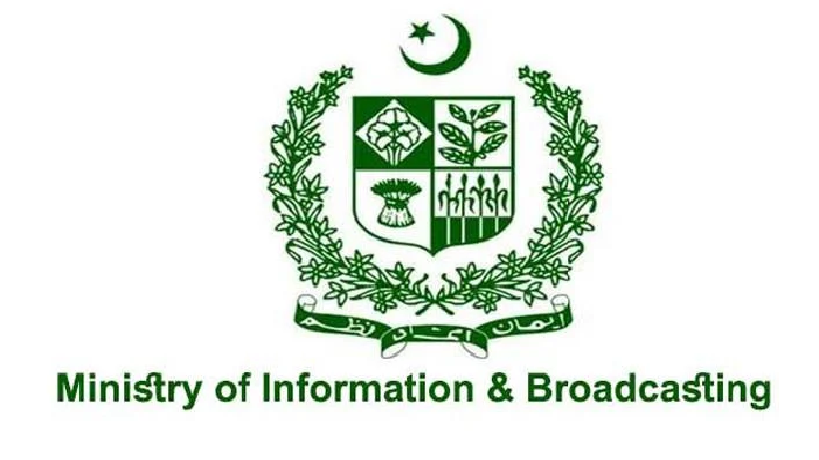ISLAMABAD, Mar 28 (APP): The Ministry of Information and Broadcasting has released a comprehensive overview of its departments’ activities of the past one year, showcasing significant advancements in digital communication, media regulation, and international outreach.
A report compiled by the MoIB shed a light on various endeavours of its departments to modernize the nation’s media landscape to address modern threats in information domain, enhance media development through transparency, and promote Pakistan’s image globally.
A key development is the establishment of the Digital Communication Department (DCD), approved in October 2024. This department is tasked with combating digital threats, misinformation, and hybrid warfare, using advanced data analytics and real-time monitoring.
The launch of the AI-enabled monitoring system by the Directorate of Electronic Media and Publications (DEMP) further underscores the government’s commitment to leveraging technology for media analysis and national security.
Over the past year, the Press Information Department (PID) implemented an integrated communication strategy to support government priorities and national stability. Key initiatives included establishing the Meta-Narrative Committee to counter disinformation, promoting the Revised National Action Plan (NAP), and supporting 4,500+ journalists.
The PID issued 7,646 press releases, 456 policy articles, and held 600+ press conferences. It also used sentiment analysis to refine strategies and launched campaigns on civic education and national unity.
Another department of the MoIB—the Directorate of Electronic Media & Publications (DEMP)—manages media monitoring, news analysis, and content production under Pakistan’s Film & Broadcast Policy.
It produced thematic documentaries aligned with government meta-narratives and launched an AI-enabled monitoring system for media analytics. DEMP created multilingual content promoting diplomacy, investment, and culture, while facilitating co-productions and tracking public sector ads.
It also publishes books and reports on national history, leadership, and Kashmir. The Monitoring Section analyzed 400+ talk shows, 8K+ tickers, 2K+ breaking news, and 100+ live events. DEMP strengthens Pakistan’s global image through outreach, exhibitions, and events.
In 2024, the Pakistan Television promoted inclusivity and cultural heritage through diverse content, including dramas, comedies, music, talk shows, travelogues, and children’s programs. Highlights included Bakht Hazari, Huye Tum Ajnabi, and Payitahat Sultan AbdulHamid II, along with coverage of national events and special broadcasts.
PTV News covered key events like the SCO Summit and Federal Budget, while PTV World upgraded to HD and introduced sign language bulletins. The International Relations Division secured media cooperation agreements with China and Azerbaijan, strengthening PTV’s focus on quality and inclusive programming.
Meanwhile, the Pakistan Broadcasting Corporation (PBC) is undergoing revival focused on financial sustainability, engineering upgrades, administrative reforms, and content improvement. A business plan aims for Rs. 3-5 billion annual revenue through ads, property leasing, PPPs, OTT, and digital billboards. Content improvements prioritize quality, youth engagement, social media, cultural diplomacy, podcast expansion, and a new Radio Pakistan Museum with Turkey.
The national premier news agency—the Associated Press of Pakistan (APP) covered major global events like the SCO Summit, Girls’ Education Conference, and Commonwealth Asia Youth Alliance in multiple languages and multimedia formats.
It signed media exchange agreements with Azertac (Azerbaijan) and TASS (Russia), expanded youth internships, partnered with the University of Sargodha for journalism training, and boosted digital outreach on key national issues like counter-terrorism, Kashmir, and polio eradication.
PEMRA aims to regulate and promote private electronic media, ensuring content diversity, quality, and a positive national image. It oversees 142 satellite TV channels, 171 FM radio stations, and 3,587 cable networks.
In the past year, PEMRA issued licenses for 2 satellite TV channels, 1 FM station, and 92 cable networks. Its AI-based monitoring system expanded coverage from 50 to 250 TV channels. PEMRA also held training on media ethics and partnered with UNDP to combat fake news. The PEMRA Amendment Act 2023 further strengthened its regulatory framework, boosting media sector growth and employment.
The Press Council of Pakistan safeguards press freedom and enforces ethical standards in print media. It handled 21 complaints, resolved 11 via the Citizen Portal, and issued 55 suo-moto notices for ethical breaches. Initiatives include a Media Ethics Training Room, outreach programs, and collaboration with PFUJ and CPNE. PCP also represents Pakistan in international forums on media ethics.
The Information Service Academy trained 14 officers in its 41st Specialized Training Program, organized workshops on digital tools, e-procurement, and countering extremism. It hosted Maldives media training and a UNDP session. With a Rs. 100 million budget for 2024-25, ISA continues developing media professionals.
The EP wing promoted tourism and cultural diplomacy, facilitating media delegations and documentaries, including a Russian TV travel film and Netflix’s Super Rich Strangers.
It supported economic coverage by international media like Bloomberg and co-hosted Korea-Pakistan Cultural Week. EP also ensured global coverage of the 2024 SCO Summit and Pakistan’s elections.
From Feb 2024 to Jan 2025, the Press Registrar issued 94 NOCs and 189 registration certificates for newspapers and periodicals, plus 4 for news agencies. No new printing press registrations were made.
The Central Board of Film Censors (CBFC) modernized operations with a Digital Cinema Projector and upgraded facilities, censoring 316 films and generating Rs. 3.9 million in revenue. The new digital screening system improved efficiency and stakeholder satisfaction.
The Implementation Tribunal for Newspaper Employees (ITNE) enforced the 8th Wage Board Award, resolving 366 cases and disbursing Rs. 55.4 million to employees. Operating with a Rs. 34 million budget, it continues efforts to secure wage rights and industry harmony.

